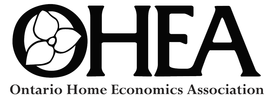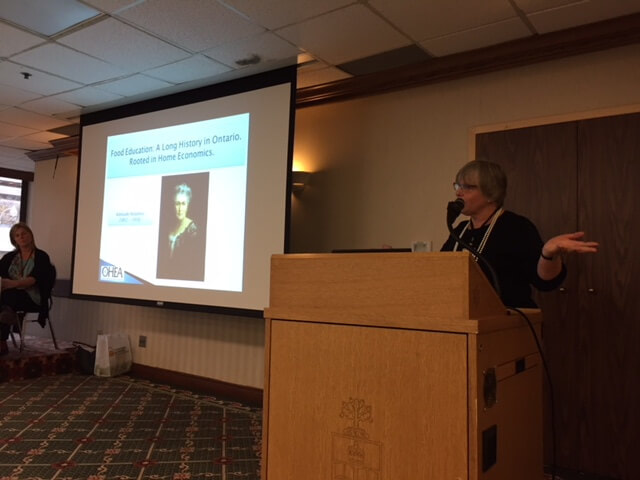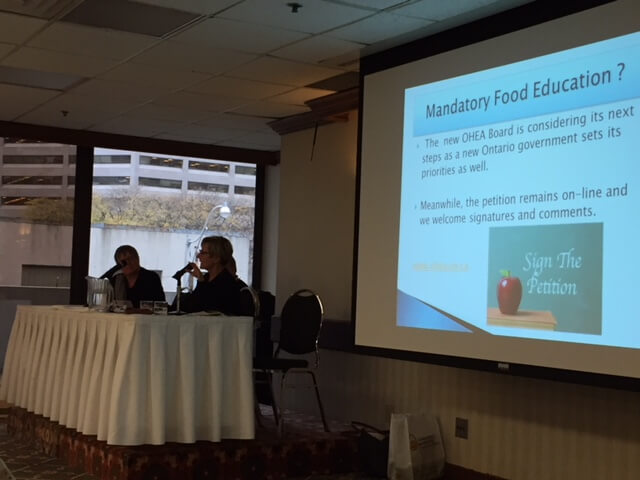|
By: Diane O'Shea, P.H.Ec. Food Literacy matters because “everyday food practices matter”. These were the words of Dr. Gwen Chapman, an opening speaker at the 2018 Nutrition Resource Centre Forum: Unpacking Food Literacy. The forum was held on November 15 at the Chestnut Convention Centre in Toronto. Dr. Chapman is the Dean of the College of Social and Applied Human Sciences at the University of Guelph. In her opening remarks, she stated that while food literacy helps people make healthier food choices that improve nutritional status and reduce risk of diet related disease, everyday food practices also matter in other important ways. Food literacy interconnects with issues pertaining to the environment, sustainability, global hunger and ethical issues, like animal welfare and the quality of livelihoods of people who work in the food system. In other words, food literacy encompasses all parts of the food system. This includes food production, distribution, preparation, consumption and waste management. She believes that food literacy in this broad perspective can transform the ways people act within the entire food system promoting understanding and positive change. Dr. Joyce Slater is the Associate Professor of Community Nutrition in the Department of Food and Nutritional Sciences at the University of Manitoba. She addressed the relevance of food literacy examining the tension between the food environment and the food and nutrition information environment. Food has become complex and confusing. In many ways, food has become mechanisms to make life easier, faster and healthier. Mixed messages tied to highly processed foods and corporate domains along with clever marketing have dominated perceptions of food. Opportunities to really learn about food preparation have declined. Dr. Slater who teaches food and nutrition literacy education and public health nutrition, sees the need for food literacy competencies in children and youth with a focus on food and well-being not only in terms of mental and physical health but in understanding and promoting sustainable food systems. She wonders about the best ways to promote food literacy and the need for measurement and best evidence of practices. She also sees food literacy as a unifying framework for food and nutrition education in policies, programs and research. OHEA was invited to be part of a panel: Getting Practical About Food Literacy and How We Communicate with Clients and Consumers. Specifically I was asked to discuss Food and Nutrition in Secondary Schools with an inclusion about the OHEA petition to the Government of Ontario to make at least one food and nutrition course compulsory for high school graduation.
While the day was filled with more than a dozen very interesting speakers and perspectives, I was very intrigued to learn of the variety of programs happening particularly in elementary schools across Canada. Project Chef – Cook Healthy, Edible Food, for example, has proven to be a very successful program for elementary children from kindergarten to grade seven in British Columbia. The event was organized by the Nutrition Resource Centre in conjunction with the Ontario Public Health Association.
1 Comment
Mary Carver
12/1/2018 09:58:19 am
Great report from Diane O/Shea. P.H.Ec. - OHEA was well represented at this event. Thanks for the recap Diane.
Reply
Your comment will be posted after it is approved.
Leave a Reply. |
The Ontario Home Economics Association, a self-regulating body of professional Home Economists, promotes high professional standards among its members so that they may assist families and individuals to achieve and maintain a desirable quality of life. Categories
All
Archives
April 2024
|
|
Subscribe to our mailing list
|
|
Unsubscribe from our mailing list
|
Copyright © 2023 Ontario Home Economics Association (OHEA). All Rights Reserved.




 RSS Feed
RSS Feed